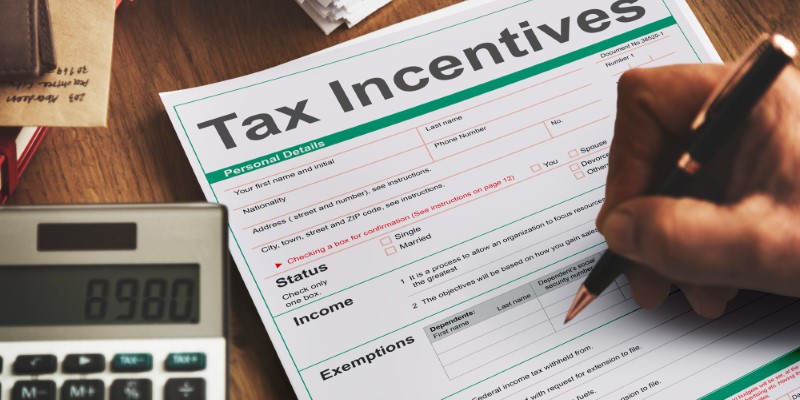Agent, Broker, and Realtor: Distinguishing Characteristics
Feb 14, 2024 By Susan Kelly
Are they considering a real estate transaction? A Realtor, estate agent, or broker will likely be involved in your marketing. Though all of these real estate professionals have the legal authority to assist you in the acquisition, disposition, or rental of real property, they are unique from one another in terms of their specific training and experience.
Agents of Real Estate

Real estate agents are licensed professionals who assist clients with property transactions such as sales and rentals. Agents are paid a commission, often a certain percentage of the selling price, for their services in connecting buyers and sellers. Each state has guidelines for what is needed to earn a real estate license. Realtors, on the other hand, often need to do the following:
- Age Requirement: Must Be 18+
- U.S. legal resident
- Take the pre-licensing course mandated by their state.
- Pass state real estate test
What Exactly Does A Real Estate Agent Do?

The role of a real estate agent is to facilitate the exchange of money and property between buyers and sellers or landlords and tenants. The agent's part is to relay any offers, counteroffers, and questions between the parties.
When an offer is accepted, the agent will collaborate with another agent to help customers complete the necessary paperwork. In addition, they inform their clients of all the steps that need to be taken to close the deal, such as house inspections, packing, and the closing date.
How Do Real Estate Professionals Get Paid?
Agents in the real estate industry often work for brokerages or agencies and are compensated through commissions. This means that their compensation is tied directly to the final sales price of the property.
The real estate agent doesn't get to keep 100% of the commission. Instead, the commission is shared amongst the businesses that employ the buyer's agent, the listing agent, and the seller's agent. Let's use a commission rate of 6% on a sale price of $200,000 to illustrate.
Real Estate Brokers
Real estate brokers are agents that have taken the next step in their careers and earned their broker's license from their respective states. In contrast to real estate agents, brokers have the freedom to strike out on their own, create their brokerages, and employ other agents.
How Do Real Estate Agents Make A Living?
Brokers in the real estate industry perform many of the same duties as agents. Agents representing purchasers often scour the market for homes that meet their client's requirements, handle negotiations, offer preparation and give further assistance up to the closing date.
Conversely, seller's brokers are responsible for assessing the market worth of their client's properties, advertising those properties for sale, discussing bids with their clients, and facilitating sales.
What Kind Of Compensation Do Real Estate Agents Receive?
Brokers in the real estate industry make money by splitting the commissions received by their agents. They make money off of agreements that they negotiate on their own, similar to real estate brokers, but they don't have to provide a cut to "the office."
Do You Need a Real Estate Broker or Agent?
Most homebuyers and sellers won't care much about the difference. However, a broker not affiliated with any agency may have access to more listings. Since brokers are not required to split their earnings with any agency, they can sometimes offer more flexible pricing.
Can You Explain the Role of a Buyer's Agent vs. a Seller's Agent?
To put it plainly, a buyer's agent is someone who helps prospective buyers find a house. In most cases, a buyer's agent will have access to listings of homes for sale through many agencies—one that represents a seller in the transaction of selling an asset.
The seller's agent, who acts on the seller's behalf, may employ such tactics as staging, holding open houses, and advertising the home in various internet formats. Typically, the commission paid by the seller to the buyer's agent and the seller's agent in a real estate transaction is divided 50/50.
Should You Avoid Using a Real Estate Agent To Lease a Home?
Yes. Agents and brokers not only assist with the purchase and sale of a home but also with the advertising of rental properties and the subsequent screening of prospective renters. In most cases, the renter will pay their broker a fee when renting a home, divided with the listing agency.
Do You Think You Could Sell Your Home on Your Own?
There are options for sellers who want to sell their house without paying real estate agent commissions under the "for sale by owner" banner. For example, a seller might put up a "for sale" sign in their yard, or they can pay a fixed price to a bargain listing agency to have their house listed on the Multiple Listing Service along with some basic images. The home won't be professionally staged or marketed, saving the web listing from attracting potential buyers.
-
 Taxes Mar 16, 2024
Taxes Mar 16, 2024Understanding Electric Vehicle Tax Credits and How They Work
Are you looking for electric vehicle tax credits? Read on to learn about electric vehicle tax credits, how they work, and their benefits in our comprehensive guide
-
 Banking Dec 29, 2023
Banking Dec 29, 2023No Balance Transfer Fee Credit Cards
There are credit cards available that do not charge a fee to transfer a balance, but your selections may be restricted. If you save money in the long term, it may be well worth paying the charge in many situations.
-
 Mortgages Oct 12, 2023
Mortgages Oct 12, 2023Who Pays Closing Costs
It's important to understand who pays closing costs when buying a home. Find out what these fees are and who is responsible for paying them.
-
 Banking Dec 18, 2023
Banking Dec 18, 2023Simplifying Real Estate: A Deep Dive Into How a 1031 Exchange Works
Dive into the world of real estate investment with our comprehensive guide on 1031 Exchange. Learn its workings, benefits, and potential pitfalls to maximize returns.
